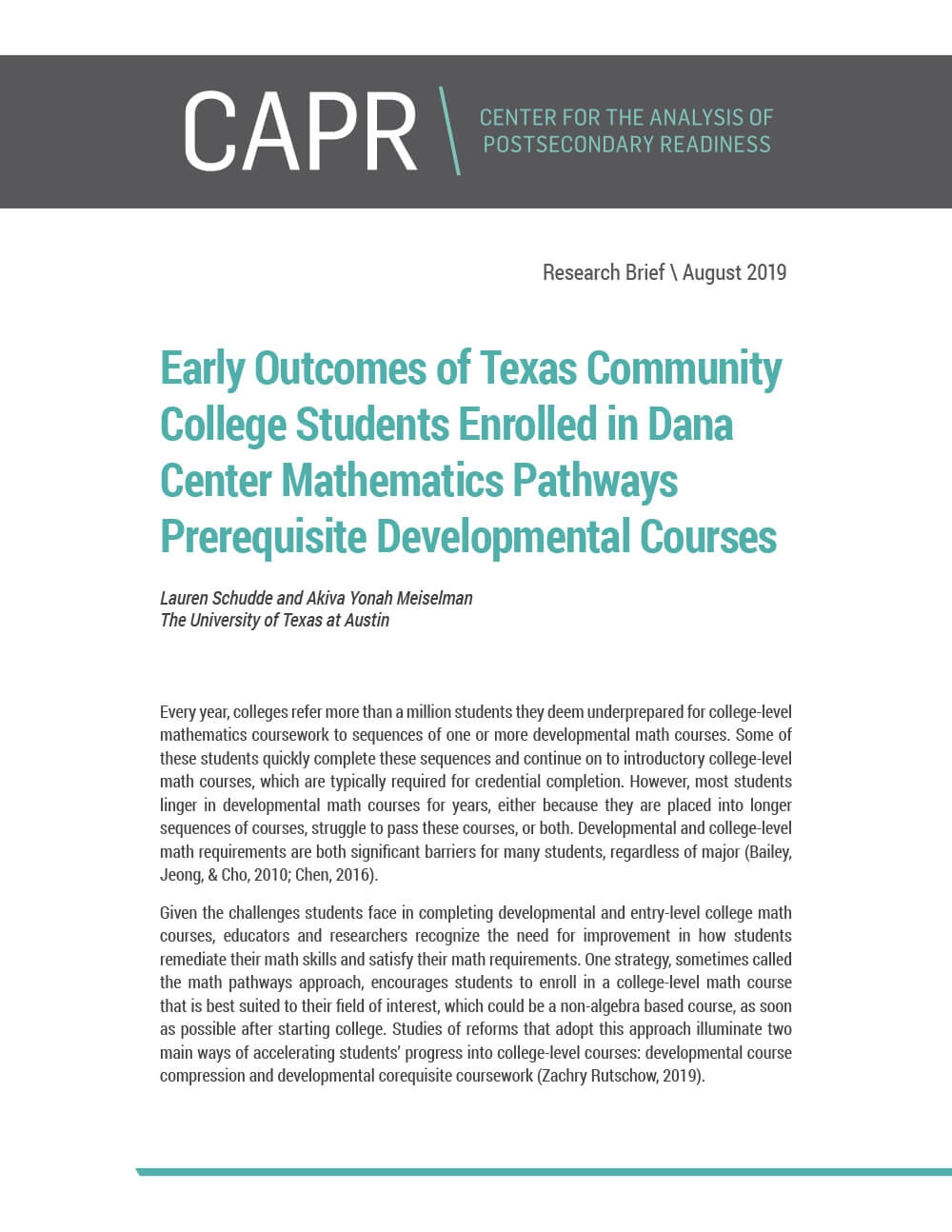
To improve outcomes in math, many Texas colleges are adopting mathematics pathways, which accelerate developmental math and tailor math courses to different majors instead of requiring all students to take algebra. This CAPR study examines whether students participating in Dana Center Mathematics Pathways (DCMP) developmental courses enroll in and pass college-level math courses at higher rates than students who take traditional developmental math courses. It employs regression analysis controlling for student characteristics using student-level data compiled by the state from the more than 20 Texas community colleges that implemented the DCMP model in 2015 and 2016.
Results from this study are encouraging. They suggest that DCMP compressed prerequisite developmental courses are effective at accelerating community college students through their math requirements. Yet this study also found systematic sorting of students into DCMP by race/ethnicity, which could exacerbate educational inequalities.
Key findings
- DCMP students were about 13 percentage points more likely to enroll in college-level math in the next semester and 8 percentage points more likely to pass college-level math in that term than peers in non-DCMP developmental courses.
- The advantaged gained by DCMP students was maintained over time—there was still a 5-percentage-point improvement in passing college-level math two years later among students in the fall 2015 cohort.
- Compared with non-DCMP courses, DCMP courses included more White students and fewer Hispanic students than would be expected based on the distribution of students at the colleges. This indicates inequality in subgroup access to reformed developmental math pathways.
